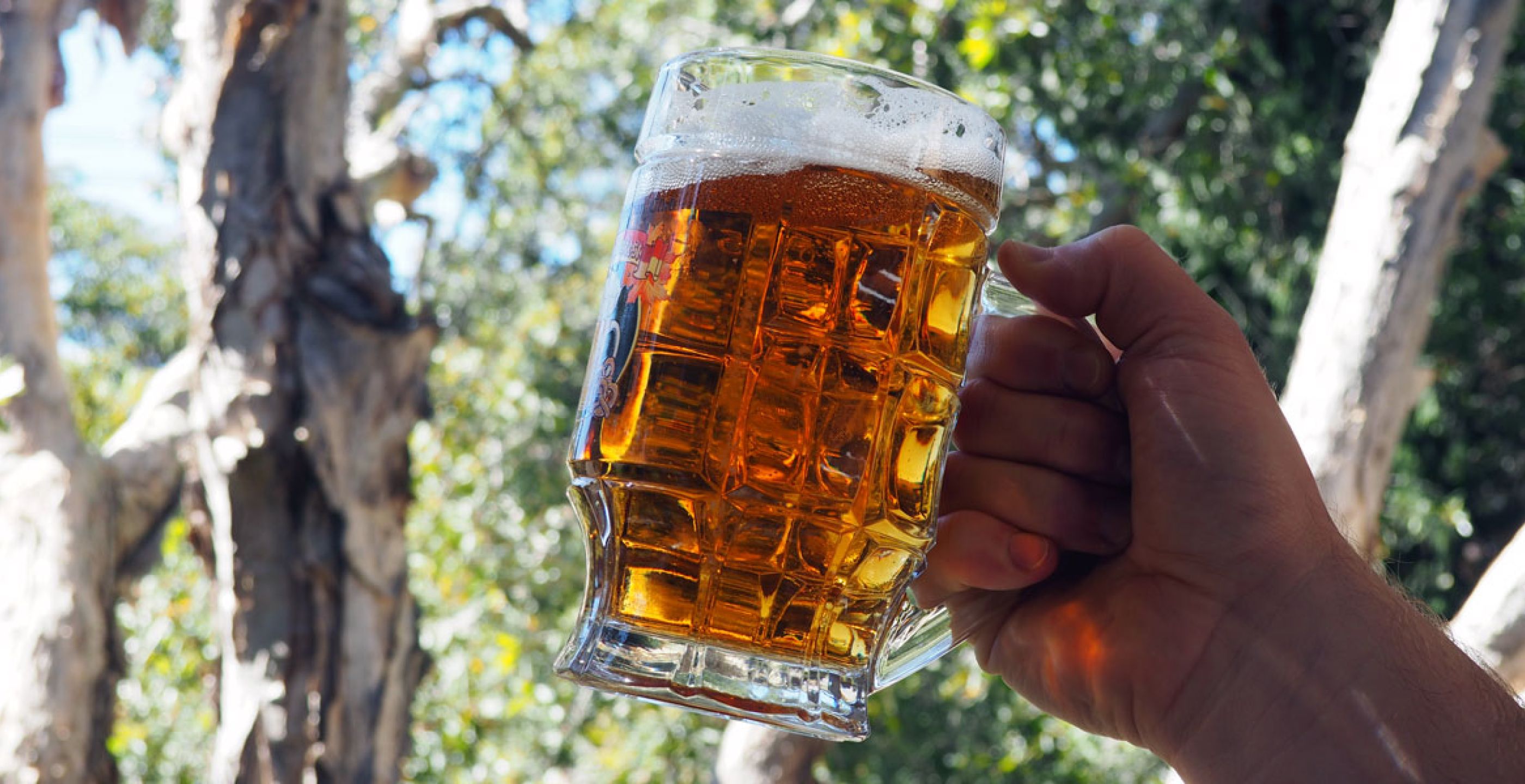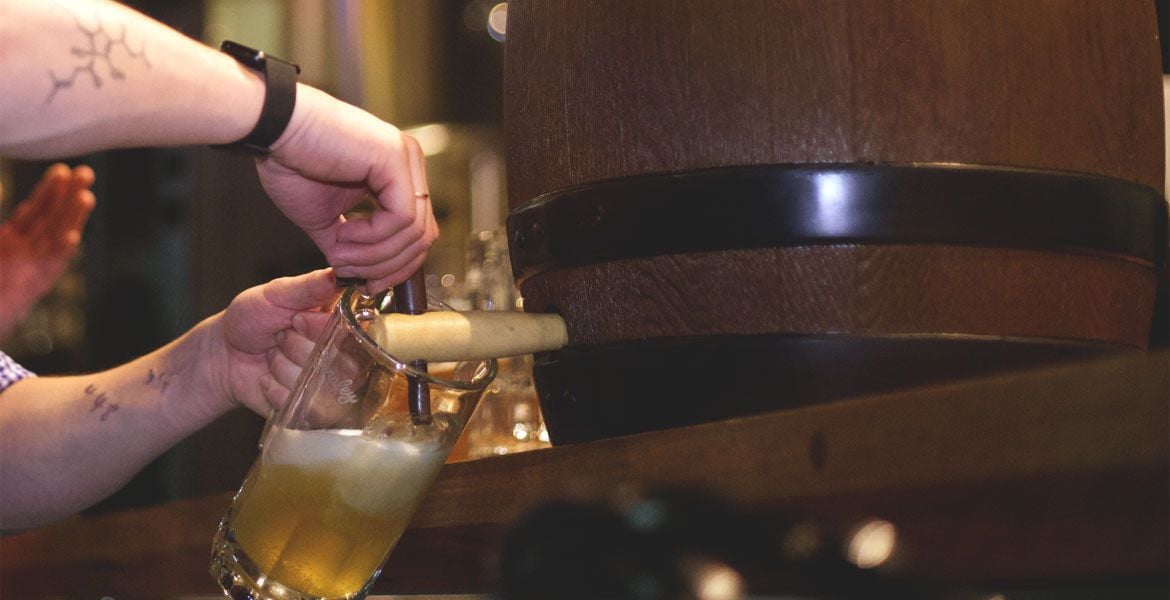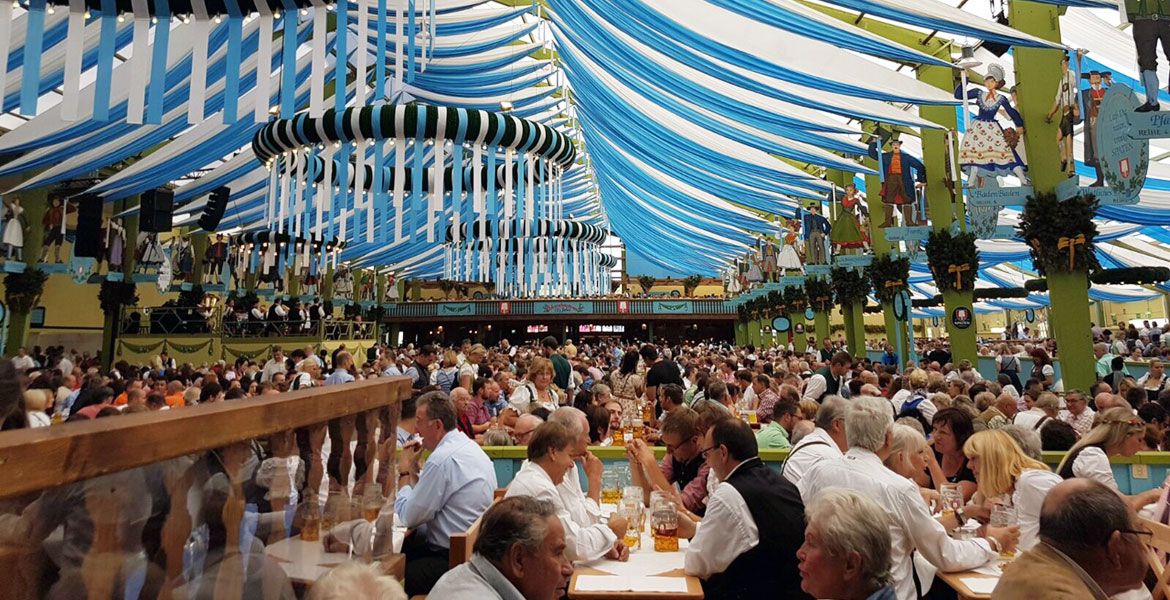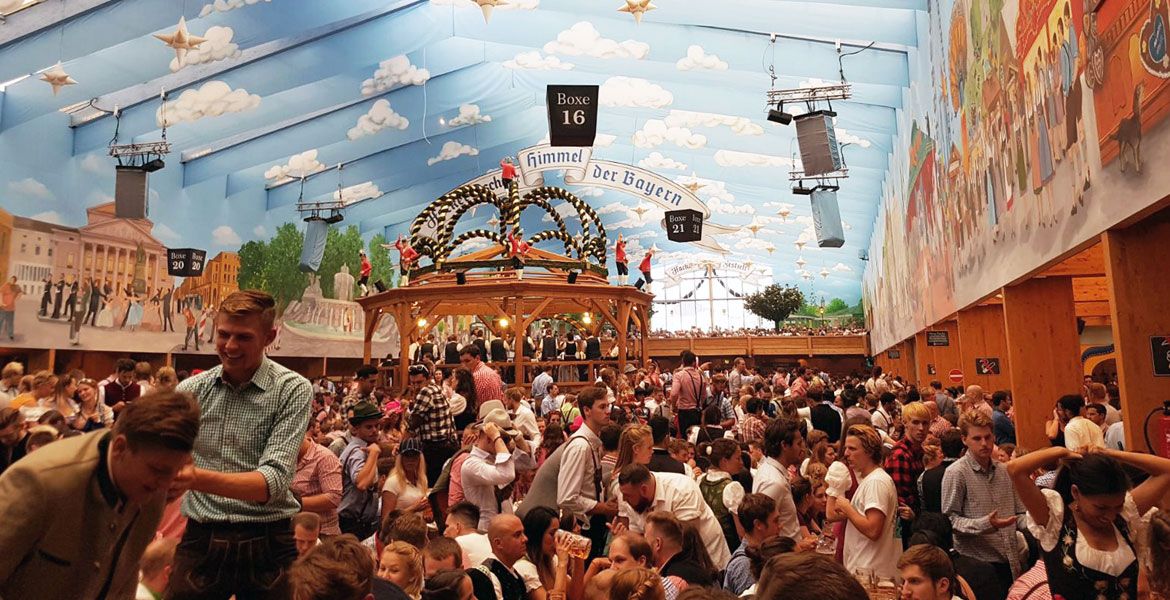Who could have predicted that when Kronprinz Ludwig and Therese of Saxe-Hildburghausen got hitched on October 12, 1810, they would set off a chain of events that would lead to the writing of this article about German-style beers in Australia? No one.
The precognitive abilities required to foresee even the possibility of a celebration of Bavarian beer culture roughly 211 years and 16,000km away is prohibitively high, and anyone suggesting such a thing would have been rightly treated as a liar and charlatan.
Yet, despite the Bavarian people’s ignorance of things to come, here we are.
The rise of smaller breweries with more agile brewing capabilities over the last 15 years has meant Australian Oktoberfest celebrations are no longer limited to clubs with a few imported kegs of Weihenstephan. Even with the spectre of the novel coronavirus looming large, breweries and venues across the country have been putting in their annual pretzel orders, dusting off the lederhosen and dirndl, and cracking open kegs of locally made lagers and wheat beers.
The popularity of Oktoberfest in Australia is not difficult to understand. We are the world’s 17th most prodigious consumers of beer and when you add in the lure of some snags and a bit of live music, you’ve basically created the blueprint for a ripper Saturday arvo.
What is mysterious, however, is the apparent paucity of German style beers for the remaining 11 months of the year. Sure, approximately four out of every five beers sold in Australia is a pale lager whose origins are arguably German or Czech, but it's doubtful anyone drinking a six-pack of Great Northern is quietly celebrating the mastery of German beer-making.
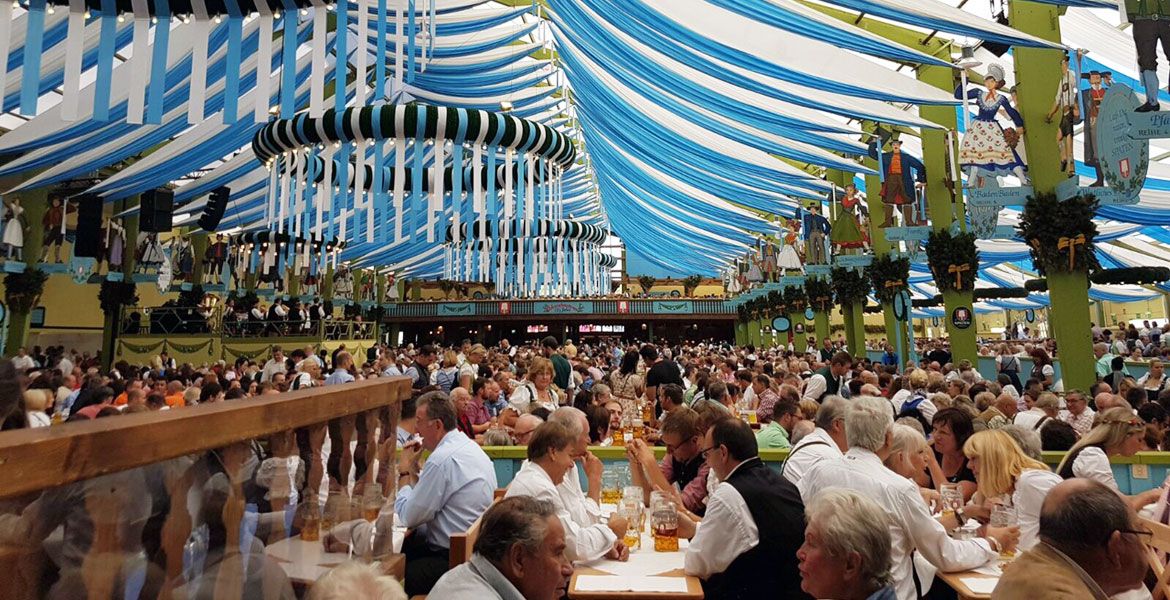
If a tent full of people can agree that a fresh and malty Märzen is a delight in late September, then why should it be so difficult to find one in April? Of the 600 or so brewing companies currently operating in Australia, there remains just a handful who are quietly determined to make sure a good bock isn’t a once-a-year treat.
Among them are Burleigh, Burnley and Slow Lane brewing companies, a trio who don’t obviously seem to have a hell of a lot in common. At 15-years-old and based in the skin cancer capital of the world, Burleigh Brewing are practically the leathery-skinned elder of the craft beer world. Burnley operate from a former Italian restaurant in the Melbourne suburb of Richmond where you’re just as likely to plump for a schooner of Brut IPA as a hazy kellerbier. And, finally, there's Sydney’s Slow Lane, the 18-month-old upstart paradoxically specialising in old world beer, who, like Tolkien’s Treebeard, won’t do anything unless it takes a long time.
While disparate in origin, size and ethos, these three breweries are at the forefront of putting German style beers into the hands and hearts of the beer drinking public 365 days of the year. So, with COVIDSafe Oktoberfest proceedings in full swing, we had a chat with Brennan Fielding (Burleigh), Chloe Hoiberg (Burnley) and Alex Jarman (Slow Lane) about their enduring fondness for German beers.
As for why we chose them, Brennan has been brewing beer for the best part of 37 years and, between growing up on a sailing boat in Hawaii to owning and operating a brewing company with wife Peta in Burleigh Heads, Brennan has made beer all over the world. With a deep love for German beer, Brennan has always managed to include classics in the Burleigh core range and seasonal releases.
Before Burnley opened in 2017, Chloe and husband Michael Stanzel spent five years in Germany, where they started the Wild Animal Brewing Co before returning home to Melbourne.
Alex is the head brewer and co-owner (with wife Yvonne) of Slow Lane, in the industrial suburb of Botany,. A homebrewing kit birthday present from Yvonne when they were living and working in Brooklyn led Alex to a career change and the founding of one of Australia’s most distinctive new breweries, dedicated to creating pitch perfect renditions of classic European beer styles.
Do you have any connections to Germany, family, work, travel or otherwise?
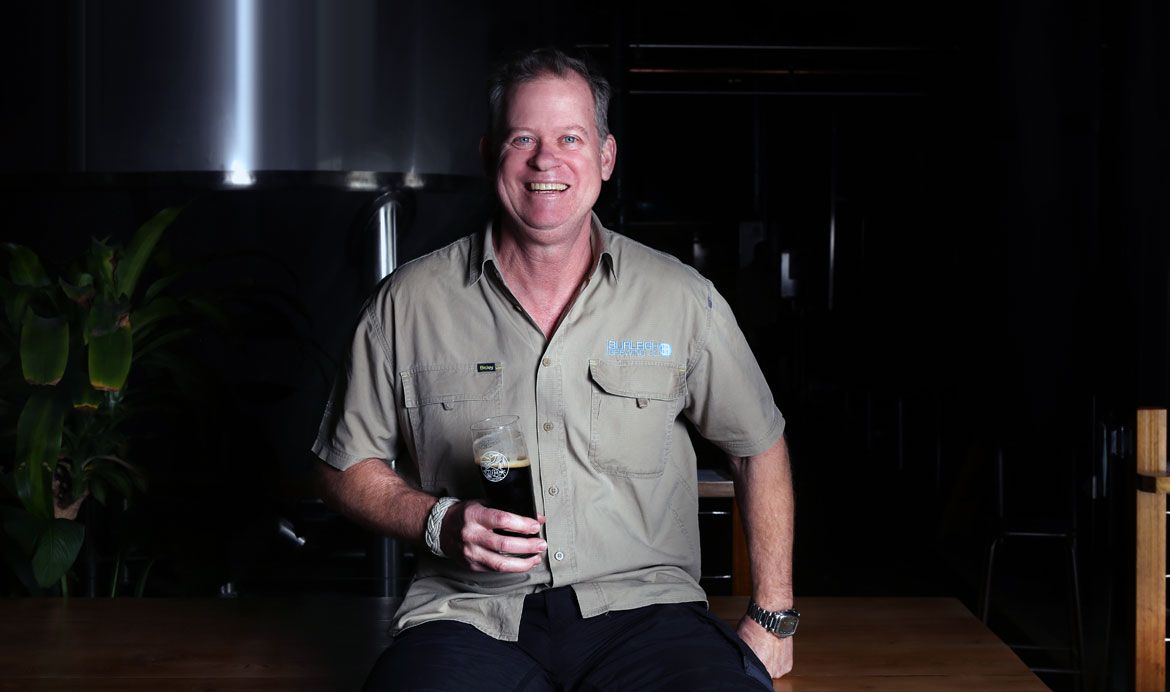
Brennan (pictured above): I actually found out not too long ago that most of my mother’s family came from Germany by way of New York. In fact, my great, great, great grandfather was a brewer in San Francisco in the 1860s. And, of course, I’ve been to Germany and drank plenty of German beer, and even worked at a German brewery in the 90s.
Chloe: My husband Michael is a first-generation German-Australian and always wanted to be a brewer. We moved to Germany where Michael spent years doing an Ausbildung, which is a fancy name for a brewing apprenticeship. We started our own brewery there but were soon lured back to Melbourne.
Alex: I've travelled to Germany a few times, and really enjoyed the Munich beer halls and Oktoberfest. I dragged the family there for a trip in 2019 while setting up the brewery and waiting for our brewing equipment to arrive. This time we did Bamberg and the surrounding Franconian area, slightly off the tourist trail. I really enjoyed exploring the smaller breweries and beer gardens and tasting their Kellerbier unfiltered lagers.
What German style beers have you/do you brew, and which would be your favourite?
Brennan: Well, I’ve brewed bock, schwarzbier, helles, hefeweizen, Märzen, smoked Märzen, heller bock, Dortmunder export and probably others I’m forgetting. Oh, and also German pils and so many variations of dunkel!
In fact, we just recently released a 15th century dunkel for Burleigh’s 15th birthday. We’re not specifically doing an Oktoberfest thing at the brewery this year, but I’ve still got a helles and a 4 percent ABV hefeweizen on tap, plus another dunkel in the tank.
Not sure I could possibly pick a favourite from all those.
Chloe: We’ve got a Vienna lager and helles in our core range which we made specifically to show how well we can brew lagers. We brew multiple German styles every year and we actually like to scatter the releases throughout the year to keep them in the conversation, you know? We really want to make lagers cool and approachable so we’ve also had a series of fruited lagers to entice people in.
The Pils that we’ve just launched is up there with my favourite beers we’ve ever made. It’s just a perfect summer beer. Germans treat lagers like Australians treat pale ales. It’s that standard, everyday, go-to beer to have after work.
Alex: We frequently brew our traditional Berliner weisse style beer (with Brettanomyces) and also our hefeweizen. We've also done a Munich dunkel, dunkelweizen and doppelbock. There's several more German style beers we have in mind for the near future.
Hefeweizen would be our favourite style to brew.
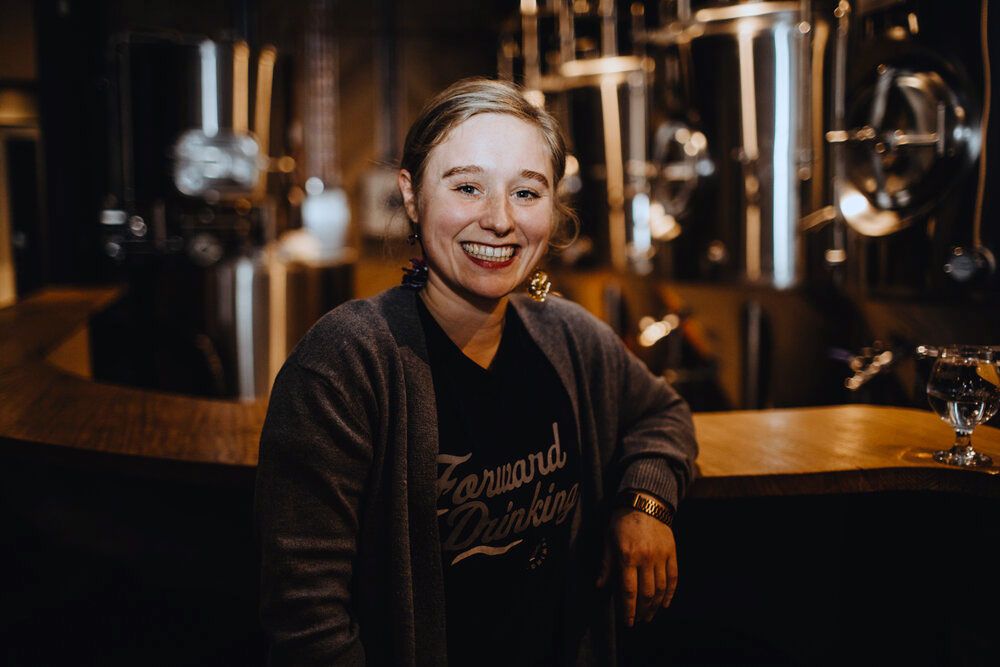
What is it about those beers that you love?
Brennan: It’s so difficult to nail down a particular style for me because I simply just love well made beer, regardless of style. Although our helles we brew using yeast from Munich – who doesn’t love a good malty helles? – it transports me back to sitting under the chestnut trees in a Munich beer garden.
But then, of course, I love schwarzbier – the way those beautiful roasty notes play off with the malt while staying dry and drinkable. But, in saying all that, I’d definitely have to temper it all with a hefeweizen or two.
Chloe: Pils are so often misunderstood because of how simple they are. My favourite beers are usually ones that I can incorporate with whatever I’m doing without overshadowing it, and a good pils is exactly that. They’re so easy to share and introduce to people new to beer, or even lagers, and are usually appreciated by everyone.
From the brewery standpoint, pils are also great in that they can be so easily tweaked to make something unique. Even just adding a non-noble hop allows a brewery to brew something classic while putting their own spin on it.
Alex: Hefeweizens are yeast driven beers, which is what we love to brew and drink. And it's just a nice, refreshing beer that makes me feel like I'm back in Germany relaxing in a beer garden.
Is there anything unique or interesting about some of the German beers you brew?
Brennan: For our 15th birthday in August we brewed a dunkel that was as close to a 15th century recipe as possible. Monks in 15th century Dusseldorf more or less perfected the style. The city has perfect water for brewing a beer like this and, before the invention of modern malt kilns, malts were roasted over fire.
So we recreated the water profile and used some smoked German malts to try and emulate that. I also sourced the ale yeast from the brewery where I’ve had the best example of the style.
Chloe: Honestly, it’s nothing special or unique, but I believe any beer can be boring if there isn’t some love and excitement behind it. The pils we’ve brewed is so close to our heart, and I know it sounds dumb, but our love for the beer and our whole ethos comes through in the final product. That’s what makes it wonderful. I think our customers understand that, so they’re always willing to gamble on a new lager from us.
Alex: We ferment our Classic Haze Hefeweizen in open top tanks, just like many German breweries that specialise in such beers. We feel this helps enhance the characteristic banana esters. High carbonation is also critical in our opinion to give that large fluffy head. So, like all of our beers, our Hefeweizen is can conditioned and we target a high carbonation level.
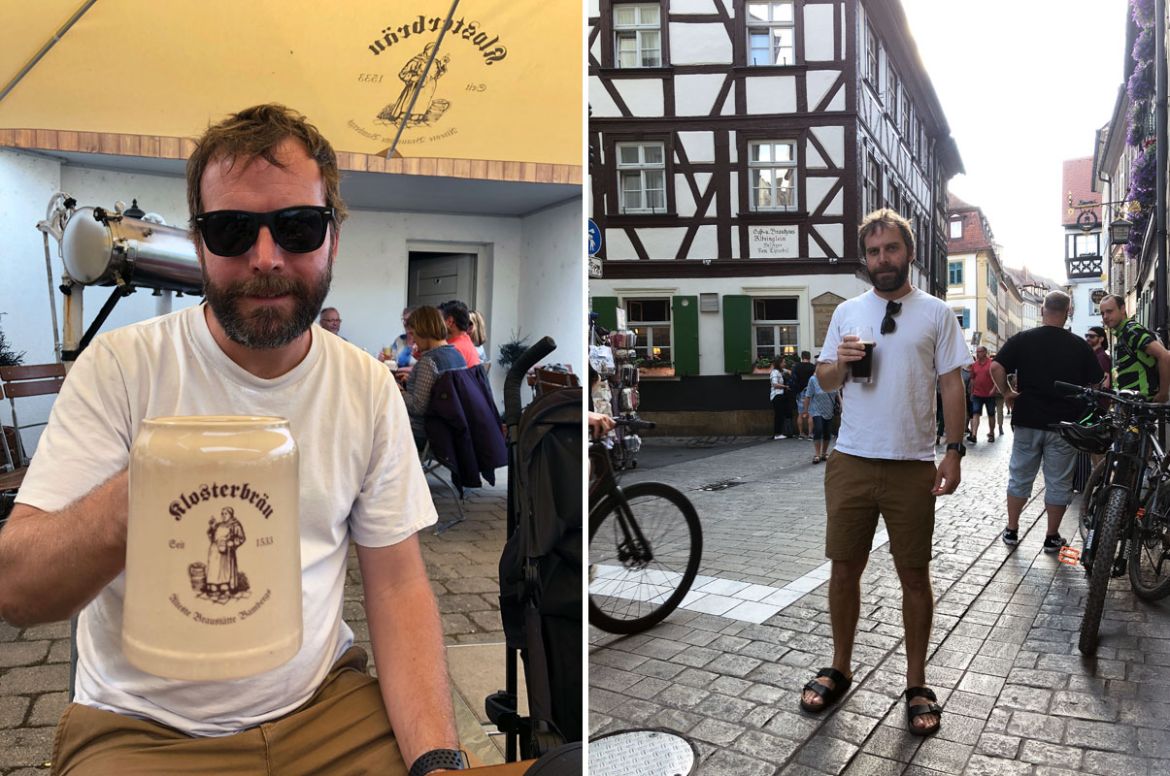
Is there a German style you wish more Australian breweries made more regularly?
Brennan: I think I’d have to say Dortmunder export. At the turn of the 1900s, when pale lagers were really kicking off, it was the most popular beer style in Germany. It just seems like a style that should be way more prevalent than it is. It’s like a pilsner with more hops, more malt and more alcohol, how is that not more popular?
Obviously, I’d love to see more hefs [Burleigh's since retired Hef won a prestigious World Beer Awards gold a few years back] but they’re very much a love it or hate it style of beer.
Chloe: Hefeweizens! They’re my favourite beers but you’ve got to really know how to brew them properly. They’re actually surprisingly difficult to brew properly and require some modifications and upgrades to the standard brewing kit so not everyone is keen to brew them. They suit our climate, our cuisine, and you get to drink them out of a special glass! Australians love that.
Germans also really embrace alcohol-free beer and I’d love to see that more here. The quality of alcohol-free weizens and lager is outstanding in Germany and their attitude towards them is so much more accepting. Same thing with radlers. Australians should drink more radlers, they’re delicious! Shandies are seen as the domain of grandmas, but labelled as a radler they might take off.
Alex: I wish everyone made more German styles in general. But, in particular, Munich dunkels, dunkelweizens, weizenbocks and doppelbocks!
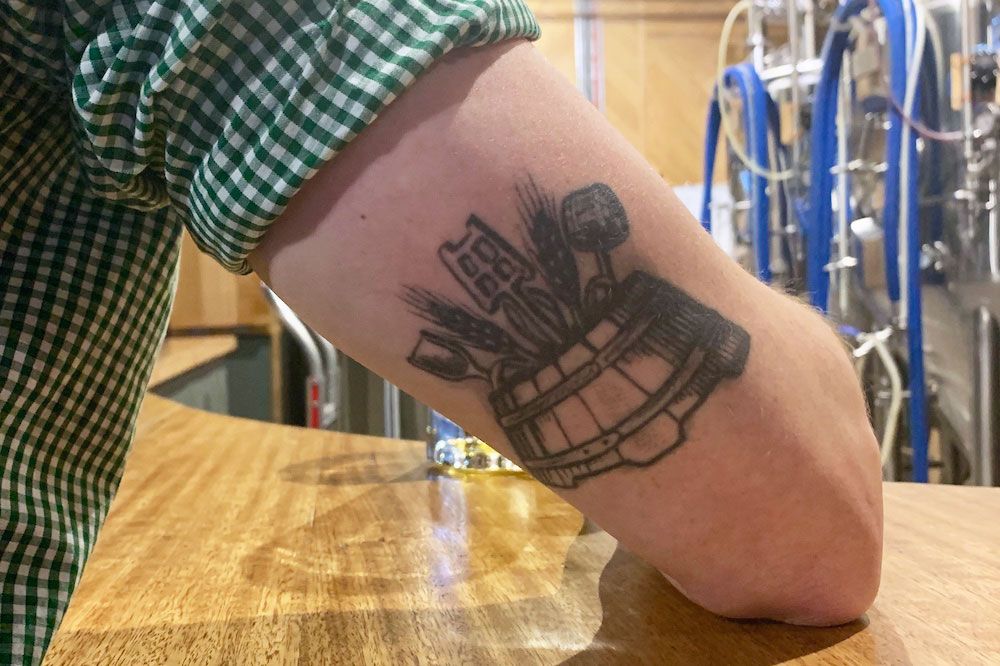
There you have it, folks: unanimous support for the humble German beer from an illustrious and unbiased panel of experts. What further endorsement could you possibly need?
So, this Oktoberfest, why not swap the chestnut trees of Munich for a backyard gum tree? You don’t need to be a Bavarian clairvoyant to foresee that drinking a clean and refreshing helles on a lovely spring day is going to be an immensely pleasurable activity.
In fact, you don’t even have to wait for Oktoberfest! Hefeweizen on Christmas day? Doppelbock during the winter solstice? A cheeky Easter rauchbier? It’s all perfectly legal.
Beers this good deserve their own celebration, but they don’t need one.
If you're reading this before October 14, 2021, you can enter a competition to win one of three cases of Burnley's Oktoberfest-themed mixed packs. It's open to members of The Crafty Pint's beer club, The Crafty Cabal.
And if you'd like to know more about the origins and evolution of Oktoberfest, check out Will Ziebell's article from a few years back.



